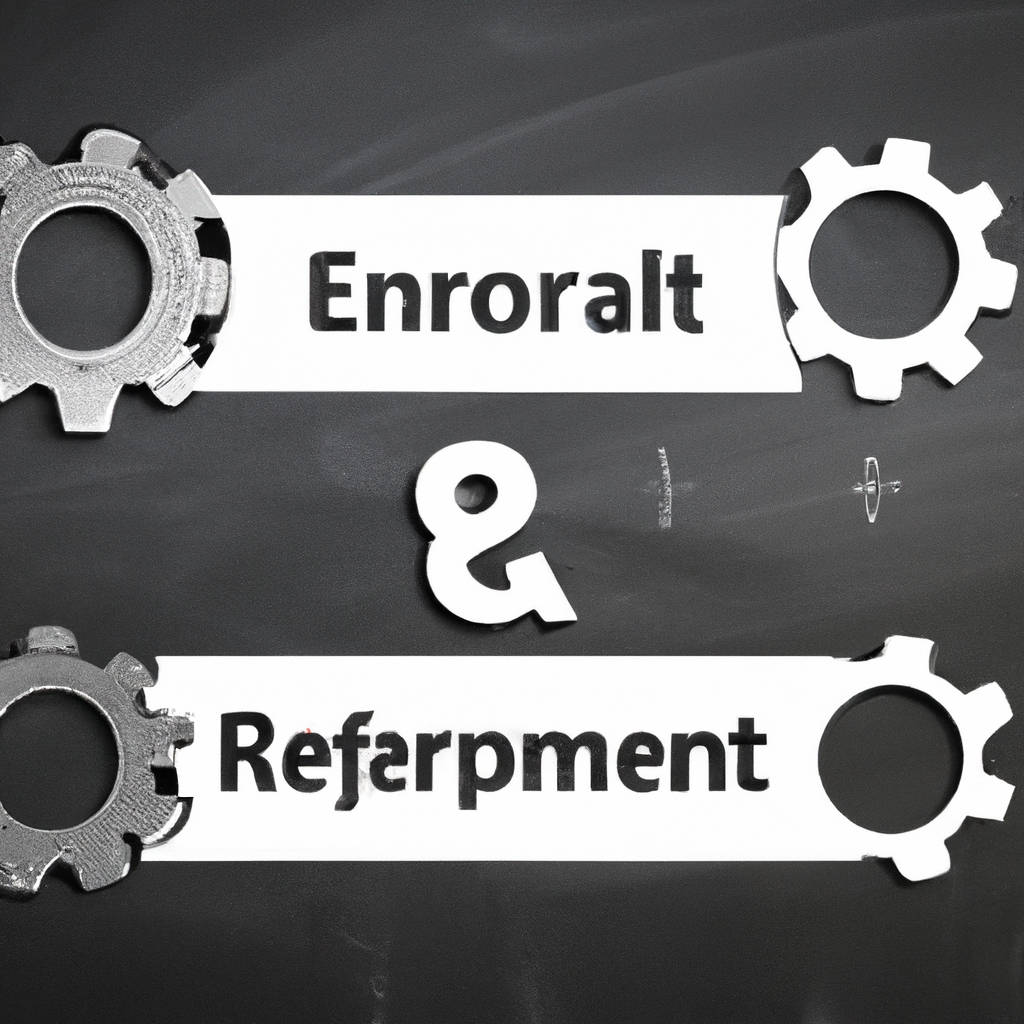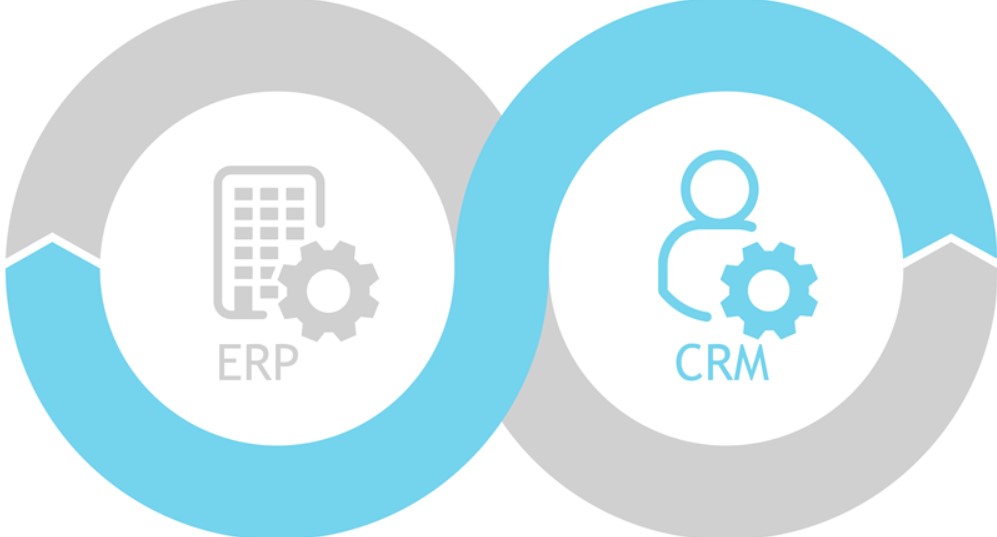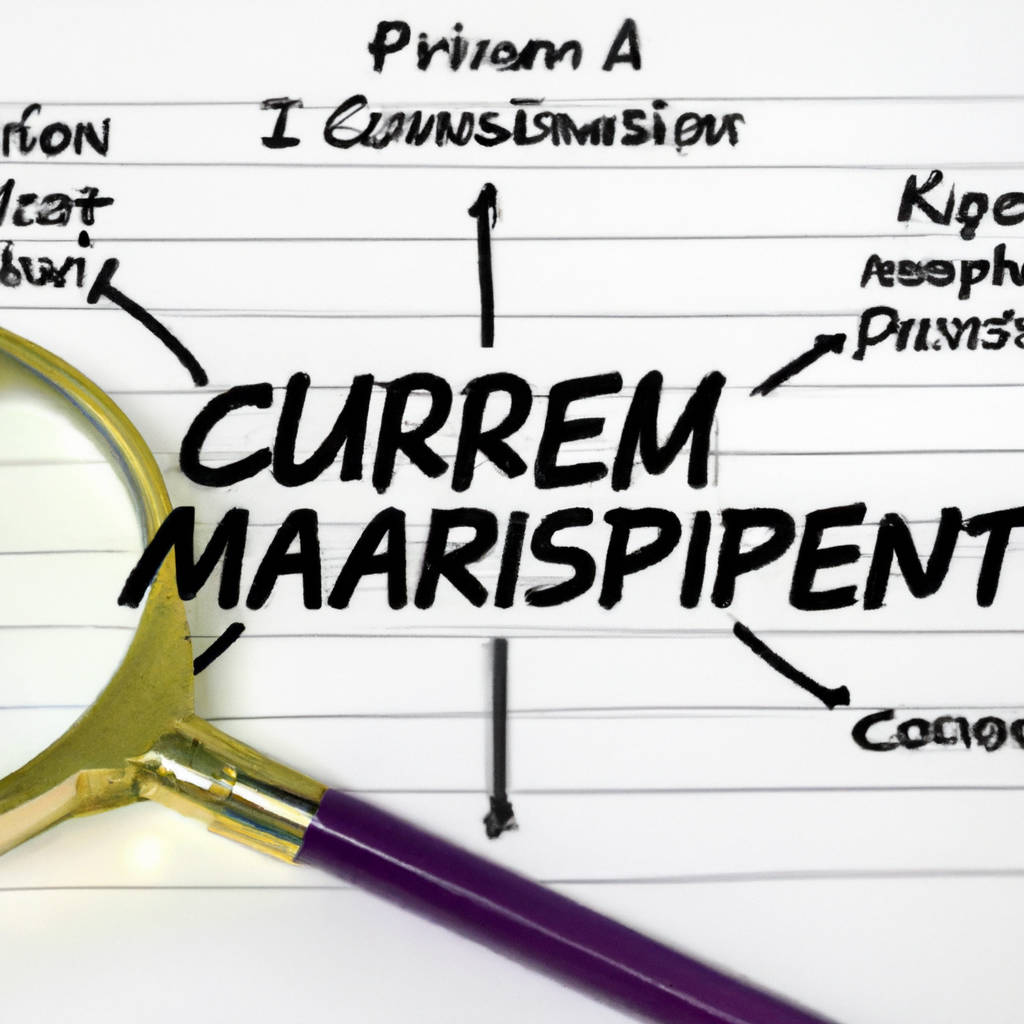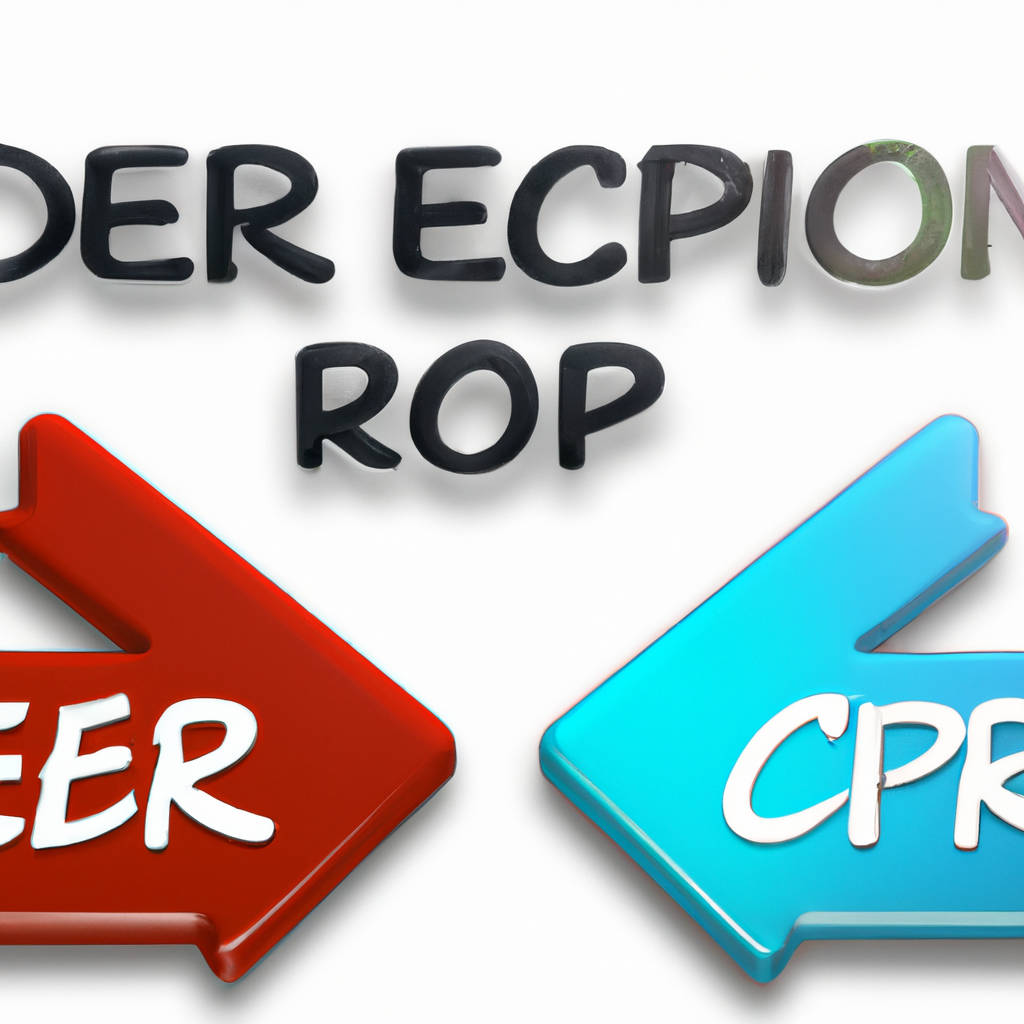Enterprise Resource Planning (ERP) and Customer Relationship Management (CRM) are two essential tools used by businesses to streamline their operations. Both systems offer distinctive benefits and differ significantly in terms of their primary function. ERP is an integrated system that manages core business processes such as supply chain, procurement, services, and human resources. It aids in improving productivity, reducing costs, and enhancing decision making by providing a unified view of the business operations. On the other hand, CRM focuses on managing a company’s interaction with its current and potential customers. It assists in understanding customer behaviors, managing customer data, marketing, sales, and customer service.
While ERP and CRM serve different purposes, integrating the two systems can bring immense benefits to a business. Integration enables organizations to have a complete view of their customers – from prospect to sales to support, and all points in between. It allows the sales team to access the customers’ transaction histories, order information, and any outstanding customer service issues. This holistic view of the customer journey enables businesses to enhance their customer experience, leading to increased customer satisfaction and loyalty.
However, despite their benefits, ERP and CRM also have inherent differences. The main difference lies in their ultimate goals. While ERP aims at reducing overheads and cutting costs, CRM works towards increasing profits through sales and customer engagement. ERP is a back-end software focusing on the business’s operational side, whereas CRM is a front-end software that manages sales, customer service, and marketing.
In terms of users, ERP is used by employees across the entire organization, while CRM is mainly used by sales and marketing personnel. ERP systems are often complex and require a longer implementation process, whereas CRM systems are easier to use and can be implemented more quickly. Finally, ERP systems are typically more expensive than CRM systems, but they can provide a higher return on investment if implemented correctly.
In conclusion, both ERP and CRM systems are crucial for businesses. The decision to adopt either, or both, depends on the organization’s specific needs and objectives. While ERP helps streamline business processes and reduce operational costs, CRM enables businesses to enhance their customer relationships and boost sales. Integrating both systems can provide a comprehensive view of the business operations and customer interactions, leading to improved efficiency and profitability. Therefore, understanding the benefits, differences, and the potential of integrating ERP and CRM is crucial for any organization aiming to optimize its operations and enhance its customer relationships.

ERP vs. CRM: Understanding the Contrast
Enterprise Resource Planning (ERP) and Customer Relationship Management (CRM) are two integral components of modern businesses, each serving a unique function. ERP systems primarily aim to streamline and integrate operational processes within an organization. They blend various facets of a company, such as procurement, human resources, inventory management, and financials, into a unified and transparent system. This enhances internal communication, productivity, and decision-making. Conversely, CRM software focuses on managing and optimizing the company’s interactions with its customers. It assists in tracking customer information, understanding customer behavior, facilitating effective communication, and improving sales and marketing efforts.
The contrasting focal points of ERP and CRM systems form the basis of their differences. While ERP systems are centered on reducing costs and enhancing operational efficiency, CRM systems are designed to boost sales and improve customer satisfaction. ERP systems tend to be more complex due to their wide range of functions and larger data management capabilities. On the other hand, CRM systems are more straightforward, primarily dealing with customer-related data and tasks.
In terms of implementation, ERP systems typically require a more significant investment of time and resources. This is due to their broad scope, which often necessitates extensive customization and integration with existing systems. Conversely, CRM systems are generally simpler to implement, with many options available as SaaS (Software as a Service) solutions that can be quickly set up and easily maintained.
Despite their contrasting functions, ERP and CRM systems are not mutually exclusive. Many businesses utilize both systems in tandem to maximize their operational efficiency and customer relations. The combination of these systems allows for a comprehensive view of the business, from internal operations to customer interactions, enabling more informed decision-making and strategic planning. Therefore, the choice between ERP and CRM is not a matter of either/or, but rather depends on the specific needs and objectives of the business.
ERP and CRM: Key Similarities
Enterprise Resource Planning (ERP) and Customer Relationship Management (CRM) are two essential software systems used in managing business operations and customer relationships respectively. Despite their different functions, they share a number of similarities. Both systems are designed to increase efficiency and profitability. They both involve the integration of information from various parts of a business into a centralized database, which facilitates better decision-making and strategic planning. Moreover, both ERP and CRM systems streamline business processes, reducing operational costs and saving time.
They also help in enhancing communication and collaboration within the organization, as they provide a unified platform where all stakeholders can access and share information. The implementation of both systems requires careful planning, customization according to business needs, and regular updates and maintenance for optimal performance. Also, both ERP and CRM systems offer analytical tools for monitoring and evaluating business performance and identifying areas for improvement. Lastly, they both have a significant impact on customer satisfaction.
While CRM focuses on managing customer relationships and improving customer service, ERP indirectly contributes to customer satisfaction by efficiently managing resources, thus ensuring timely and quality delivery of products or services. In conclusion, ERP and CRM share the fundamental aim of improving business performance through integration, automation, and optimization of business processes, despite their different areas of focus.

Exploring ERP: What It Entails
Exploring the concept of Enterprise Resource Planning (ERP) necessitates a thorough understanding of its intricate components and vast capabilities. At its core, ERP is a software system that integrates various business processes into a single, coherent data structure. This includes finance, human resources, purchasing, inventory, and more. The implementation of an ERP system is a comprehensive process that entails meticulous planning, preparation, and execution.
It starts with a detailed analysis of the organization’s current processes and an identification of areas where integration can lead to efficiency and productivity improvements. The selected ERP system must be customized to match the organization’s requirements, while also considering its technological capabilities. The execution phase is a complex operation that requires the active participation of all stakeholders, including management, employees, and the ERP vendor.
With successful implementation, an ERP system can significantly improve data visibility across the organization, streamline workflows, simplify reporting, and ultimately, enhance decision-making processes. However, it’s important to note that ERP implementation is not a one-time event, but an ongoing process that requires continuous updates and adjustments to meet evolving business needs. Therefore, exploring ERP entails not only understanding its immediate benefits but also its long-term implications for organizational growth and development.
Understanding CRM: Its Purpose
Customer Relationship Management, often abbreviated as CRM, serves a fundamental purpose in businesses. Its primary aim is to manage and improve the relationship between a company and its customers. By analyzing customer interactions and data throughout the customer lifecycle, it helps a company to retain customers, drive sales growth, and even attract new clients.
CRM systems compile information from various channels, including a company’s website, telephone, email, and social media, providing a clear overview of every individual customer in real time. This allows businesses to understand more about their target audience and their needs, leading to more effective, personalized communication.
Moreover, CRM serves the purpose of streamlining processes within an organization. It automates the tasks that are repetitive and time-consuming, freeing up staff to concentrate on more important tasks. It also aids in collaboration, ensuring that all departments have access to the same up-to-date, reliable information. This seamless flow of data can help eliminate silos within an organization, enhancing team efficiency and productivity.
In addition, CRM plays a crucial role in customer service. With a comprehensive view of the customer’s history, businesses can anticipate needs or potential issues and respond proactively, improving customer satisfaction and loyalty.
Furthermore, CRM systems provide robust analytics and reporting tools. They can track performance and measure results across multiple metrics, which can inform strategic decision-making.
In conclusion, understanding CRM and its purpose is vital for any business aiming to optimize customer relationships and internal processes. Through data analysis, automation, collaboration, and customer service enhancement, CRM can significantly contribute to a company’s growth and success.

ERP vs. CRM: Choosing for Your Business
When it comes to optimizing business processes, both Enterprise Resource Planning (ERP) and Customer Relationship Management (CRM) are frequently discussed strategies. However, understanding the differences between these two systems is crucial in determining which one is the best fit for your business.
ERP is a type of software that manages and integrates the core processes necessary to run a company, including finance, supply chain, operations, reporting, manufacturing, and human resource activities. This system is typically used by businesses that need to manage a lot of data across many departments. ERP software provides a central repository for all business data, which can lead to more efficient decision-making and improved communication within the company.
On the other hand, CRM focuses specifically on managing interactions with customers, both current and potential. CRM systems help businesses manage relationships, streamline processes, and improve profitability. They are typically used by sales and marketing departments to store all customer interactions, track sales activities, and forecast sales. CRM systems can help businesses understand their customer base better, provide improved customer service, and ultimately drive sales growth.
Choosing between ERP and CRM systems ultimately depends on your business’s specific needs. If your company is struggling with managing data across multiple departments, an ERP system might be more beneficial. However, if improving customer relationships and driving sales growth are top priorities, a CRM system could be the better choice. In some cases, businesses may benefit from implementing both systems. This can provide a comprehensive overview of both internal operations and customer relations, leading to improved efficiency and profitability. However, this option can be costly and time-consuming, so careful consideration and planning are necessary.
In conclusion, the decision between ERP and CRM systems should be based on your business’s individual needs and goals. Both systems offer unique benefits that can significantly improve business processes and profitability when implemented correctly.
Deciding on ERP Implementation
Deciding on ERP (Enterprise Resource Planning) implementation involves a strategic analysis of various factors that dictate the operational efficiency of a business. It is a crucial decision that can significantly transform an organization’s productivity, streamlining processes and enhancing overall performance. However, it also calls for substantial investments in terms of time, finances, and human resources. Therefore, before implementing ERP, organizations must conduct a thorough evaluation of their current systems, processes, and future growth prospects. This evaluation helps identify the need for an ERP system and the potential benefits it can bring to the organization.
The decision also necessitates a detailed understanding of different ERP systems available in the market, along with their features, capabilities, and costs. It is essential to choose a system that aligns with the organization’s needs and has the potential to adapt to future changes. The chosen ERP system should be capable of integrating with existing systems and processes without causing disruptive changes.
The involvement of top management is vital in this decision-making process, as their support and commitment can play a pivotal role in the successful implementation of the ERP system. They need to be active participants in the planning and execution process to ensure that the ERP system is implemented in a way that it meets the organization’s objectives.
Lastly, the organization must also consider the training needs of the employees who will be using the ERP system. Adequate training can ensure smooth transition and effective utilization of the system. In conclusion, deciding on ERP implementation is a comprehensive process that involves careful consideration of various factors to ensure that the organization benefits from it.

Choosing When CRM is Essential
Deciding on when to implement a Customer Relationship Management (CRM) system is a crucial task for any business. This decision can significantly impact the overall performance and profit margins of an organization. A CRM system is essential when a company starts to notice a drop in customer satisfaction levels, an increase in customer complaints, or a decline in sales. It becomes even more crucial when the company has a large customer base, and managing individual interactions becomes a challenge. A CRM system helps businesses keep track of their interactions with customers, thus ensuring that no customer query or complaint goes unanswered.
Also, if a company is planning to scale up its operations, having a CRM system in place can help manage the increased workload efficiently. Moreover, if a business is dealing with a multitude of information channels, such as emails, phone calls, social media, and physical stores, a CRM system can help consolidate all these data points into a single platform, making it easier for the business to track and analyze customer behavior. In essence, a CRM system becomes essential when managing customer relationships becomes too complicated or time-consuming without one.
It not only streamlines processes but also provides valuable insights into customer behavior, which can be leveraged to improve products or services and create a better customer experience. The decision to implement a CRM system should, therefore, be driven by the needs and complexities of a business’s customer relationship management.
Critical Self-Assessment Questions
Critical self-assessment questions are essential tools in personal and professional growth. These are probing inquiries that we pose to ourselves to evaluate our abilities, skills, behaviors, values, and goals. They help us gain a deeper understanding of our strengths and weaknesses, thus enabling us to capitalize on our assets and work on our deficits.
These questions also facilitate the identification of our passions, beliefs, and aspirations, aiding us in making informed decisions about our life trajectory. Furthermore, critical self-assessment questions provide us insight on how we interact with others, handle stress, manage conflicts, and respond to challenges. They allow us to reflect on our past actions, learn from our experiences, and devise strategies for improvement. They also help us to gauge our level of self-awareness, emotional intelligence, and resilience.
Therefore, regular self-assessment using critical questions is a powerful practice for self-improvement, self-discovery, and self-transformation. It is an effective method of ensuring we are constantly evolving, adapting, and progressing, rather than stagnating. By asking ourselves these critical questions, we can become more conscious of our actions, thoughts, and feelings, and consequently become more intentional and effective in our personal and professional lives. In conclusion, critical self-assessment questions are invaluable for personal development and achieving success in various aspects of life.

CRMs Elevating Business Success
Customer Relationship Management (CRM) systems have become an indispensable tool for businesses striving to achieve a higher level of success. By efficiently managing customer data, CRMs enable companies to streamline their operations, enhance customer relationships, and boost sales. A notable advantage of using CRM systems is that they offer a comprehensive view of customer interactions, which helps businesses understand customer behavior and preferences better.
This, in turn, allows companies to tailor their products and services according to the specific needs and expectations of their customers, thereby increasing customer satisfaction and loyalty. Furthermore, by automating routine tasks such as data entry and reporting, CRMs not only save time but also reduce the risk of errors, thereby increasing operational efficiency. They also provide valuable insights into sales trends and customer behavior patterns, which can be used to make informed business decisions.
Moreover, the use of CRM systems can improve collaboration between different business departments, ensuring everyone has access to the same up-to-date customer information. This fosters a more coordinated approach to customer service, leading to improved customer experiences and ultimately, increased business success. Therefore, whether a business is small or large, investing in a robust CRM system can significantly elevate its success by improving its overall operational efficiency and customer relationships.
ERP, CRM, or Both: Your Decision
Enterprise Resource Planning (ERP) and Customer Relationship Management (CRM) systems are crucial tools for businesses aiming to streamline their operations and enhance customer engagement respectively. However, choosing between the two or deciding to implement both depends largely on your company’s specific needs, goals, and budget constraints. ERP systems are mainly designed to integrate and automate core business processes such as supply chain management, procurement, human resources, financial management, and more.
It provides a consolidated view of the business processes which aids in decision making and the overall operational efficiency. On the other hand, CRM focuses primarily on managing all aspects related to customers, from leads and prospects to sales and after-sales service. It helps businesses understand their customers’ needs, preferences, and buying behavior, thereby enabling them to tailor their marketing and sales efforts accordingly. While both systems offer distinct benefits, integrating ERP and CRM can provide a more unified and comprehensive view of a company’s operations and customer interactions.
This integration can help businesses improve their responsiveness to customer needs, enhance operational efficiency, and ultimately drive revenue growth. However, the decision to adopt ERP, CRM or both should be influenced by factors such as the size and nature of your business, your specific operational challenges, and your long-term business objectives. It’s also essential to consider the implementation cost and the Return on Investment (ROI) before making the final decision.

Maximizing Results: ERP-CRM Integration
Effective integration of Enterprise Resource Planning (ERP) and Customer Relationship Management (CRM) systems is an essential strategy for businesses aiming to maximize their operational efficiency and profitability. The seamless interaction between these two systems allows for a synchronized flow of data across different departments, reducing redundancy and enhancing decision-making processes. ERP systems primarily manage back-end operations such as supply chain, inventory, and financial management, while CRM focuses on front-end activities such as sales, marketing, and customer service.
When these two systems are integrated, businesses are bestowed with a holistic view of their operations, from supply chain management to customer interactions. This ensures a streamlined process, where information is updated in real-time, enabling swift responses to customer queries, faster order fulfillment, and efficient resource allocation. For instance, a sales representative can access the availability of a product from the ERP system via the CRM, delivering accurate information to the customer promptly, thereby enhancing customer satisfaction and loyalty.
Moreover, the integration of ERP and CRM mitigates the risk of data discrepancies and inaccuracies that can occur due to manual data entry in isolated systems. This not only improves data integrity but also aids in generating insightful reports and analytics for strategic decision-making.
Furthermore, the amalgamation of these systems promotes cost-effectiveness by reducing the need for maintaining separate systems, leading to significant savings in terms of hardware, software, and personnel costs.
In conclusion, ERP-CRM integration is a potent tool to maximize results by enhancing operational efficiency, improving customer relations, ensuring data integrity, and promoting cost-effectiveness. Businesses that leverage the synergistic benefits of ERP and CRM integration are better equipped to navigate the complex landscape of today’s competitive business environment.
